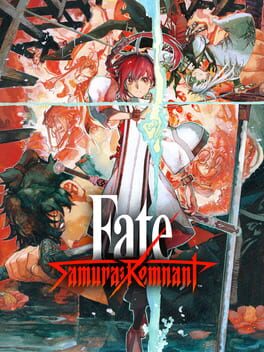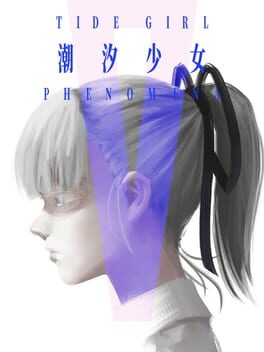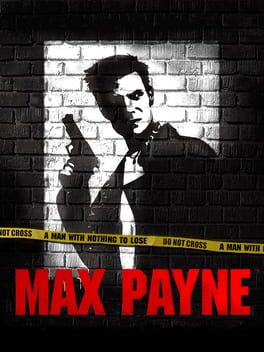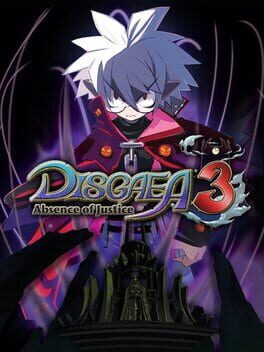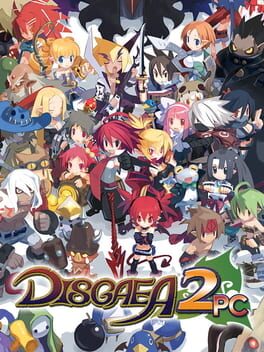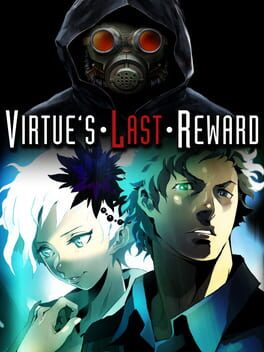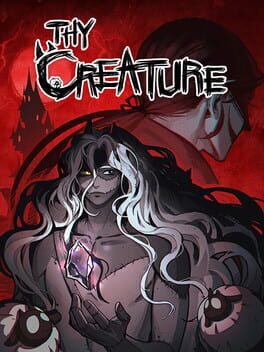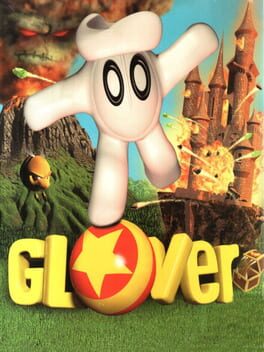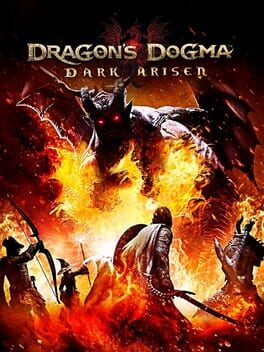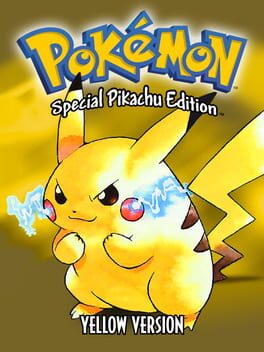marukoto
85 reviews liked by marukoto
Fate/Samurai Remnant
2023
This review contains spoilers
Fate/Samurai Remnant is a game that I didn’t really have any expectations for, or any hopes of being good, but ended up blowing me away with its immense attention to detail on history, themes and what makes Type-Moon stories work.
It’s a game that tries to blend a lot of things: Musou combat, themes about violence and selfishness, interesting reflections on history, a virtual tour of XVIIth century Edo, and make a cohesive experience out of it all. Some of it works, some of it doesn’t really work, but it ends up feeling like a full package with something to actually say with its own words, even if what it’s saying isn’t inventive or new, it feels more resonant because it expresses it through itself.
But first, some context:
Fate/Samurai Remnant is an Action RPG made by Omega Force and published by Koei Tecmo. It’s based on the longrunning Fate franchise, made by writer Kinoko Nasu and it’s set in XVIIth century Edo during the early-ish days of the Tokugawa shogunate. While the game is set in the Fate universe, it’s not connected to anything other than the main elements of the setting.
When it was announced during the Fate/Grand Order new years livestream during December 2022 I was very…skeptical. I’ve long been tired of Type-Moon’s endless wheel-spinning with FGO in particular, and the state of the company thanks to it and Fate’s broadening and expanding popularity made me think that this game was just going to be another generic Fate™ branded game with nothing new to add either thematically or in concept. It didn’t help that it took around 5 months for us to see the first trailer with gameplay, which made me a bit concerned that, since the game was being developed by Omega Force, was going to be a normal musou in the vein of the studio’s other spin-off games, and while I enjoy my fair share of musou games, there wasn’t really anything for me to be excited about aside from seeing a “new” Fate game.
That was until I played the game at Anime Expo, and suddenly it started clicking for me. Bit by bit the gameplay seemed way more interesting than what I was expecting, since it didn’t end up playing like a musou game. As more and more information started to come out, I got increasingly more interested in what the game had to offer. All the interviews made it seem like the staff was extremely passionate of what they were making, and all the staff comments and live shows had this vibe of sheer hype from everyone, which kinda ended up making me excited about it.
Buuuut what about the game itself? Well like I said before I think the game is very good, but it does falter in some aspects. A lot of it really works, and two weeks after beating it I feel like I can say for sure that it’s one of my favorite works within the Fate canon for a lot of aspects, mainly the story and themes. So as my first review on this blog, and my first longform piece of writing I’ve done in a while, I want to try to examine what makes the game tick for me, both in gameplay and story, and how it all coalesces into a game that really gets what makes Type-Moon stories work.
Needless to say, there’s gonna be full spoilers in this after the read more part, so if you wanna see what the game does by yourself I recommend you play it for yourself; maybe after a sale or something.
Samurai Remnant’s combat has some interesting mechanics and plays with some ludonarrative aspects well, but does feel janky in ways that are inherent to the systems it’s inheriting from other Omega Force games. Some bosses shine, especially the servant fights that don’t involve Archers, but for most of the game you’re stuck spamming the same special skills and healing your way through fights while poorly telegraphed attacks and unclear riposte timings murk you immediately. The stance system is very fun and I think that Iori’s playstyle as someone who plays more like an ARPG character compared to the Musou-playing servants is really cool, but there’s bits of brilliance in the system that I don’t think were particularly suited for the system the game is using.
For starters, the game is really bad at being a pure action game. While it feels great on a holistic front, take one of the mechanics away and it suddenly gets a lot more boring very quickly. Whenever you have to fight a boss as a guest servant or without Saber or a Rogue Servant party member, the game devolves into tedious button mashing and waiting for windows of vulnerability, making you rely on the unclear riposte system to deal good damage against the enemy’s shield gauge so you can start dealing real damage to their health bar. I think there’s an interesting system in place here, but the issues make it very hard to determine what makes it fun and what doesn’t really work.
This doesn’t entirely mean that the game is tedious button mashing. Like I said, taking the combat holistically, it feels really nice to engage with the RPG elements. Buffing yourself, using healing items, using magic, choosing your extra party member, it all feels great to engage with even on the highest difficulty.
There’s pockets in the game where taking away mechanics does shine though. The fights with Saber, the duel with Musashi in chapter 5, the Rogue Berserker fights, the couple fights against Rogue Saber; these were all very fun fights because, to me, they feel designed around being fought first and being playable second. One of the main issues the musou framework has over the combat design is that every Servant boss (with a couple exceptions) has to use the same moveset and animations of their playable counterpart. This creates a problem with certain fights where attacks go by super fast and are impossible to react to, which leads to you getting hit hard and needing to spam healing items. Coupled with the unclear and unreliable riposte system, this makes for generally frustrating fights that felt like a slog to go through.
What makes this more frustrating is that, like I said before, sometimes the system works incredibly well. The Musashi duel I mentioned earlier is my favorite boss in the game because all her attacks are clearly readable (they literally shine with different colors) and you’re always able to play strategically against her windows where she’s vulnerable.
I think Samurai Remnant’s combat shows the cracks within Omega Force’s style of gameplay when used in a non musou context. In those games you have to plan around the macro of the level; the difficulty stems from having to do objectives and traveling the level rather than the micro of dodging attacks and doing combos. Since this game doesn’t do that, you get combat that feels “fun” to engage with but leaves a lot to be desired when engaging with the vast majority of enemies. There’s some mechanics here that try to adapt the formula into this smaller scale, like the earth parry and riposte, but because attacks in the musou framework have to large and full of VFX the screen gets hard to read very quickly, and it doesn’t help that the riposte requires some strict timing that’s not made clear with the fights involving monsters and human enemies when not controlling Saber or whatever servant you have to control in the moment.
It does work with some bosses though, like the Musashi duel and the Saber boss in chapter 3, but these fights are few and far between, which makes it extra frustrating because you can see a version of the game where learning all those timings would be really rewarding and fun but most fights feel unreadable and unreactable, and I ended up spamming affinity skills and healing items to get through them.
But honestly? the gameplay is really nothing to waste my breath over (even though I did write like 750 words on it lol). The main meat of the game is the story, the characters, the themes and what the game itself represents in the broader context of Fate and Fate’s relationship to history as historical fiction.
At its core, Samurai Remnant is a story that’s interested in the contrast of violence between post-Sengoku Japan and the “peaceful” Tokugawa shogunate. The game makes clear time and time again that Edo, compared to the Sengoku era, is a better place to live since war isn’t as prevalent or common, it’s a new era for everyone since they can live peacefully and without worries; “There’s no need to pick up the sword anymore” says Miyamoto Musashi in one of the animated cutscenes.
Iori, in turn, is a character who realized his lot in life relatively early. He understands that his path is one of violence and and dead bodies, one that he’s forced to walk down for the sake of his dream. For Iori, attaining enlightenment through the sword is what he’s meant to do, and he lives his life for the sake of it. This contrasts with Saber’s motivation and backstory. They were someone whose life was also defined by their bloodshed and murder. The legendary hero of Yamato, the one who killed the Takeru brothers, who killed their own father and brother, a person molded by violence from their fictional start.
Both of these characters live in accordance to the blood they shed, but Saber has the benefit of being able to see their life through different eyes. They start the game with a chest filled with pride and superiority, a servant like no other, one who wields the legendary Amenomurakumo-no-tsurugi. As their relationship with Iori’s facade develops, they begin to understand both the world around them and what Iori truly believes in, and little by little they start seeing the beauty in the peace of Edo.
But who does this violence serve? Samurai Remnant tries to take this premise and runs through it with every character. The wishes of the participants of the Ritual all beg to release themselves from the world they live in and from what the future holds for them. Shousetsu is destined to fail and die, her historical counterpart’s coup resulting in little more than a footnote in Tokugawa’s history. Zheng Chenggong’s rebellion against the Qing will end with his demise as the Ming dynasty ends in ruin. These wishes, the wishes of the people who yearn to be free from the fate of the world are taken and thrown away, discarded into the everlasting brightness of the full moon.
“You truly are beautiful---How wonderful would it be if I could realize your wish?”
To Iori, reaching enlightenment through the sword is the path he’s cursed to walk on. Just like how the Root curses all mages into a life bereft of happiness, the sword does the same to anyone who wishes to strive higher and higher. His trauma over the bandit incident during his childhood and the passing of Musashi---the passing of his gateway to enlightenment---leads him to try to quench his thirst for blood by seeking a fight with someone who’s as skilled with a blade, as fast and as beautiful as his former master.
I think there’s something beautiful in the way the final scene between him and female Musashi is framed, as the night sky is painted with the stillness of the full moon, instead of the sharpness of the crescent moon that he saw on that day. The unquenchable thirst that drives Iori leads him to his highest high: being defeated by the hands of the strongest opponent he knows, and being killed by Saber is the thing that leads him to reach enlightenment.
This wish, this idea of the fullness that swordsmanship can bring to you, is core to not just the base ideas presented in the thematic bible of Nasu’s work, but also in the way the Waxing Moon itself functions as an object of enlightenment. A failure of a device that exemplifies the unhappy lives that the people who swear by its processes are forced to live through.
But while wishes are discarded, the people are not. There’s no need for a magical device when you can try to bring your dreams to reality yourself. If violence is your destiny, then cut away and grasp it with your hands. Every character ends up attaining their wish in some manner by the end of the game. Iori himself wished for an upheaval, a world of endless violence where he’s able to attain his own enlightenment through his own means, but even though he’s cut down by Saber, he’s not unhappy with his fate. It’s this contrast that makes the game one of the most interesting works in the Fate canon of works to me.
But as I played and screamed in joy at the very end of the game, I was reminded of another game that tackled the same ideas more than 10 years ago: Nitroplus’s masterpiece Full Metal Daemon Muramasa. It’s honestly kinda funny how Samurai Remnant’s ending C and the ending of The Hero in Muramasa are basically the same beats note for note, but while Muramasa is focused more on the personal ethics and philosophy involved with the path of violence with regards to justice, Samurai Remnant is more interested in the selfishness of each participant’s wish and the ramifications of the wish itself. I think this is what makes it more interesting than any other non Nasu Fate spinoffs, because it approaches the premise of the Holy Grail War from the perspective of someone who is already willing to engage in it for the sake of itself and for the violence it presents.
What are wishes for? What is violence for? Samurai Remnant is a game that, while a bit clunkily, manages to make this question feel central to all the interactions you have with the ludic element of the game. From the gameplay to the story, I think Samurai Remnant is a game that will really spark something in the people who are interested in the history of the setting and the history of Fate as a series about history.
It’s a game that tries to blend a lot of things: Musou combat, themes about violence and selfishness, interesting reflections on history, a virtual tour of XVIIth century Edo, and make a cohesive experience out of it all. Some of it works, some of it doesn’t really work, but it ends up feeling like a full package with something to actually say with its own words, even if what it’s saying isn’t inventive or new, it feels more resonant because it expresses it through itself.
But first, some context:
Fate/Samurai Remnant is an Action RPG made by Omega Force and published by Koei Tecmo. It’s based on the longrunning Fate franchise, made by writer Kinoko Nasu and it’s set in XVIIth century Edo during the early-ish days of the Tokugawa shogunate. While the game is set in the Fate universe, it’s not connected to anything other than the main elements of the setting.
When it was announced during the Fate/Grand Order new years livestream during December 2022 I was very…skeptical. I’ve long been tired of Type-Moon’s endless wheel-spinning with FGO in particular, and the state of the company thanks to it and Fate’s broadening and expanding popularity made me think that this game was just going to be another generic Fate™ branded game with nothing new to add either thematically or in concept. It didn’t help that it took around 5 months for us to see the first trailer with gameplay, which made me a bit concerned that, since the game was being developed by Omega Force, was going to be a normal musou in the vein of the studio’s other spin-off games, and while I enjoy my fair share of musou games, there wasn’t really anything for me to be excited about aside from seeing a “new” Fate game.
That was until I played the game at Anime Expo, and suddenly it started clicking for me. Bit by bit the gameplay seemed way more interesting than what I was expecting, since it didn’t end up playing like a musou game. As more and more information started to come out, I got increasingly more interested in what the game had to offer. All the interviews made it seem like the staff was extremely passionate of what they were making, and all the staff comments and live shows had this vibe of sheer hype from everyone, which kinda ended up making me excited about it.
Buuuut what about the game itself? Well like I said before I think the game is very good, but it does falter in some aspects. A lot of it really works, and two weeks after beating it I feel like I can say for sure that it’s one of my favorite works within the Fate canon for a lot of aspects, mainly the story and themes. So as my first review on this blog, and my first longform piece of writing I’ve done in a while, I want to try to examine what makes the game tick for me, both in gameplay and story, and how it all coalesces into a game that really gets what makes Type-Moon stories work.
Needless to say, there’s gonna be full spoilers in this after the read more part, so if you wanna see what the game does by yourself I recommend you play it for yourself; maybe after a sale or something.
Samurai Remnant’s combat has some interesting mechanics and plays with some ludonarrative aspects well, but does feel janky in ways that are inherent to the systems it’s inheriting from other Omega Force games. Some bosses shine, especially the servant fights that don’t involve Archers, but for most of the game you’re stuck spamming the same special skills and healing your way through fights while poorly telegraphed attacks and unclear riposte timings murk you immediately. The stance system is very fun and I think that Iori’s playstyle as someone who plays more like an ARPG character compared to the Musou-playing servants is really cool, but there’s bits of brilliance in the system that I don’t think were particularly suited for the system the game is using.
For starters, the game is really bad at being a pure action game. While it feels great on a holistic front, take one of the mechanics away and it suddenly gets a lot more boring very quickly. Whenever you have to fight a boss as a guest servant or without Saber or a Rogue Servant party member, the game devolves into tedious button mashing and waiting for windows of vulnerability, making you rely on the unclear riposte system to deal good damage against the enemy’s shield gauge so you can start dealing real damage to their health bar. I think there’s an interesting system in place here, but the issues make it very hard to determine what makes it fun and what doesn’t really work.
This doesn’t entirely mean that the game is tedious button mashing. Like I said, taking the combat holistically, it feels really nice to engage with the RPG elements. Buffing yourself, using healing items, using magic, choosing your extra party member, it all feels great to engage with even on the highest difficulty.
There’s pockets in the game where taking away mechanics does shine though. The fights with Saber, the duel with Musashi in chapter 5, the Rogue Berserker fights, the couple fights against Rogue Saber; these were all very fun fights because, to me, they feel designed around being fought first and being playable second. One of the main issues the musou framework has over the combat design is that every Servant boss (with a couple exceptions) has to use the same moveset and animations of their playable counterpart. This creates a problem with certain fights where attacks go by super fast and are impossible to react to, which leads to you getting hit hard and needing to spam healing items. Coupled with the unclear and unreliable riposte system, this makes for generally frustrating fights that felt like a slog to go through.
What makes this more frustrating is that, like I said before, sometimes the system works incredibly well. The Musashi duel I mentioned earlier is my favorite boss in the game because all her attacks are clearly readable (they literally shine with different colors) and you’re always able to play strategically against her windows where she’s vulnerable.
I think Samurai Remnant’s combat shows the cracks within Omega Force’s style of gameplay when used in a non musou context. In those games you have to plan around the macro of the level; the difficulty stems from having to do objectives and traveling the level rather than the micro of dodging attacks and doing combos. Since this game doesn’t do that, you get combat that feels “fun” to engage with but leaves a lot to be desired when engaging with the vast majority of enemies. There’s some mechanics here that try to adapt the formula into this smaller scale, like the earth parry and riposte, but because attacks in the musou framework have to large and full of VFX the screen gets hard to read very quickly, and it doesn’t help that the riposte requires some strict timing that’s not made clear with the fights involving monsters and human enemies when not controlling Saber or whatever servant you have to control in the moment.
It does work with some bosses though, like the Musashi duel and the Saber boss in chapter 3, but these fights are few and far between, which makes it extra frustrating because you can see a version of the game where learning all those timings would be really rewarding and fun but most fights feel unreadable and unreactable, and I ended up spamming affinity skills and healing items to get through them.
But honestly? the gameplay is really nothing to waste my breath over (even though I did write like 750 words on it lol). The main meat of the game is the story, the characters, the themes and what the game itself represents in the broader context of Fate and Fate’s relationship to history as historical fiction.
At its core, Samurai Remnant is a story that’s interested in the contrast of violence between post-Sengoku Japan and the “peaceful” Tokugawa shogunate. The game makes clear time and time again that Edo, compared to the Sengoku era, is a better place to live since war isn’t as prevalent or common, it’s a new era for everyone since they can live peacefully and without worries; “There’s no need to pick up the sword anymore” says Miyamoto Musashi in one of the animated cutscenes.
Iori, in turn, is a character who realized his lot in life relatively early. He understands that his path is one of violence and and dead bodies, one that he’s forced to walk down for the sake of his dream. For Iori, attaining enlightenment through the sword is what he’s meant to do, and he lives his life for the sake of it. This contrasts with Saber’s motivation and backstory. They were someone whose life was also defined by their bloodshed and murder. The legendary hero of Yamato, the one who killed the Takeru brothers, who killed their own father and brother, a person molded by violence from their fictional start.
Both of these characters live in accordance to the blood they shed, but Saber has the benefit of being able to see their life through different eyes. They start the game with a chest filled with pride and superiority, a servant like no other, one who wields the legendary Amenomurakumo-no-tsurugi. As their relationship with Iori’s facade develops, they begin to understand both the world around them and what Iori truly believes in, and little by little they start seeing the beauty in the peace of Edo.
But who does this violence serve? Samurai Remnant tries to take this premise and runs through it with every character. The wishes of the participants of the Ritual all beg to release themselves from the world they live in and from what the future holds for them. Shousetsu is destined to fail and die, her historical counterpart’s coup resulting in little more than a footnote in Tokugawa’s history. Zheng Chenggong’s rebellion against the Qing will end with his demise as the Ming dynasty ends in ruin. These wishes, the wishes of the people who yearn to be free from the fate of the world are taken and thrown away, discarded into the everlasting brightness of the full moon.
“You truly are beautiful---How wonderful would it be if I could realize your wish?”
To Iori, reaching enlightenment through the sword is the path he’s cursed to walk on. Just like how the Root curses all mages into a life bereft of happiness, the sword does the same to anyone who wishes to strive higher and higher. His trauma over the bandit incident during his childhood and the passing of Musashi---the passing of his gateway to enlightenment---leads him to try to quench his thirst for blood by seeking a fight with someone who’s as skilled with a blade, as fast and as beautiful as his former master.
I think there’s something beautiful in the way the final scene between him and female Musashi is framed, as the night sky is painted with the stillness of the full moon, instead of the sharpness of the crescent moon that he saw on that day. The unquenchable thirst that drives Iori leads him to his highest high: being defeated by the hands of the strongest opponent he knows, and being killed by Saber is the thing that leads him to reach enlightenment.
This wish, this idea of the fullness that swordsmanship can bring to you, is core to not just the base ideas presented in the thematic bible of Nasu’s work, but also in the way the Waxing Moon itself functions as an object of enlightenment. A failure of a device that exemplifies the unhappy lives that the people who swear by its processes are forced to live through.
But while wishes are discarded, the people are not. There’s no need for a magical device when you can try to bring your dreams to reality yourself. If violence is your destiny, then cut away and grasp it with your hands. Every character ends up attaining their wish in some manner by the end of the game. Iori himself wished for an upheaval, a world of endless violence where he’s able to attain his own enlightenment through his own means, but even though he’s cut down by Saber, he’s not unhappy with his fate. It’s this contrast that makes the game one of the most interesting works in the Fate canon of works to me.
But as I played and screamed in joy at the very end of the game, I was reminded of another game that tackled the same ideas more than 10 years ago: Nitroplus’s masterpiece Full Metal Daemon Muramasa. It’s honestly kinda funny how Samurai Remnant’s ending C and the ending of The Hero in Muramasa are basically the same beats note for note, but while Muramasa is focused more on the personal ethics and philosophy involved with the path of violence with regards to justice, Samurai Remnant is more interested in the selfishness of each participant’s wish and the ramifications of the wish itself. I think this is what makes it more interesting than any other non Nasu Fate spinoffs, because it approaches the premise of the Holy Grail War from the perspective of someone who is already willing to engage in it for the sake of itself and for the violence it presents.
What are wishes for? What is violence for? Samurai Remnant is a game that, while a bit clunkily, manages to make this question feel central to all the interactions you have with the ludic element of the game. From the gameplay to the story, I think Samurai Remnant is a game that will really spark something in the people who are interested in the history of the setting and the history of Fate as a series about history.
Fate/Samurai Remnant
2023
this is a spiritual recreation of fate route and that is my favorite piece of literature so all i can say is peak fiction. the attention to detail in this game is fuckin insane, so many little moments that are kept consistent. musashi's theme is a big example of this. i love this game im so glad i played it even if i took my time through it.
Fate/Samurai Remnant
2023
I enjoyed this far more than I expected to. It is far from a perfect game, that much is clear, but I can't deny how invested I was in it. The story definitely introduces more elements than it cares to explain, but I mostly enjoyed what it chose to focus on. Iori and Saber were definitely the highlight of the game, and the NG+ ending was by far the most satisfying. The main endings were alright, although they really needed some further falling action. The enemies also got a little damage spongey near the end of my first playthrough, but this is a non-problem on NG+ so I guess it didn't bother me as much lol.
Even though I know this isn't a particular standout game when viewed with a critical eye, I really liked the parts of it that I liked. So much so that I can ignore the parts I didn't for the most part.
8.5/10
Even though I know this isn't a particular standout game when viewed with a critical eye, I really liked the parts of it that I liked. So much so that I can ignore the parts I didn't for the most part.
8.5/10
Tide Girl: Phenomena
2023
feel like making a review only to give the clarification that if it were not awkwardly (machine?) translated this would be a solid 3 or 3 1/2 stars for me, cause the presentation and story is tremendous. messy yuri with monogatari aesthetics and sick musical swells, sign me up. but when the way you engage with the game is reading its really hard to ignore the many mistakes in the translation. fully recommend it if you know Chinese or Japanese tho.
Max Payne
2001
Through its apparent attempt to be surreal and subversive it ends up succeeding in its original goal, that of being the most honest and down to earth of them all. Max's sense of justice is so stark it feels like vengeance, and he certainly tries to paint it that way, but the end result is a completely righteous set of ideals that guide him on his path towards heaven.
Harmful Park
1997
Leagues from the best shmup I've ever played, but I'll cherish it more than more objective successors because Harmful Park expertly plays its part as a haunted house ride of nigh-megalomanic visual creativity and sprite art. Every inch of its stages feel rich and inhabited and you just wanna fuckin live there as you stuff your face with "Pop Cown".
Harmful Park
1997
Disgaea 2 PC
2017
They should have called Axel "Atlas" instead, 'cause he carried the entire game.
Easily the weakest cast in a Disgaea game, except for Rosalyn who's just ok and Axel that singlehandedly saves the game from being boring. Everyone else kinda sucked.
The story was just ok. If you're not invested in the relationship between Adell and Rosalyn you WILL be bored.
The gameplay is just more Disgaea.
Easily the weakest cast in a Disgaea game, except for Rosalyn who's just ok and Axel that singlehandedly saves the game from being boring. Everyone else kinda sucked.
The story was just ok. If you're not invested in the relationship between Adell and Rosalyn you WILL be bored.
The gameplay is just more Disgaea.
1 list liked by marukoto
